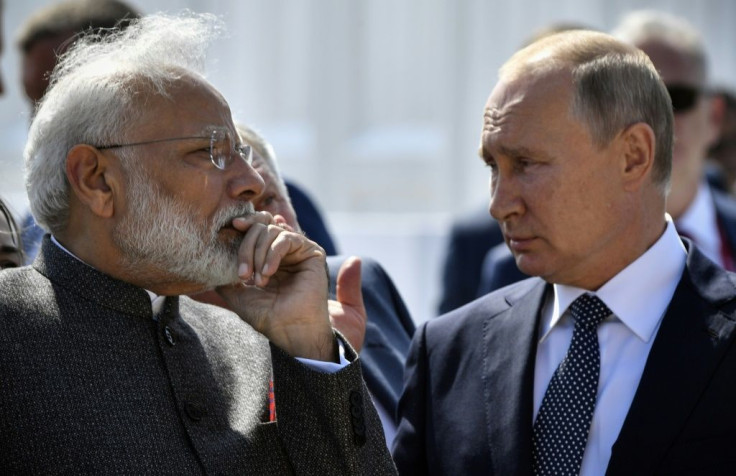India Challenging China’s Influence In South China Sea With Russia's Backing

New Delhi and Moscow have agreed to launch a sea route that will extend from Vladivostok, a major port city in Eastern Russia, to Chennai, on the Bay of Bengal in eastern India. The agreement, made under a “memorandum of understanding” signed by both countries, could present a challenge to China as the maritime route will include parts of the South China Sea where Beijing continues to flex its muscle and ignore international rulings that deny its claims over a large part of the sea.
The alliance was announced at an economic forum in Vladivostok, attended by India's Prime Minister Narendra Modi, Japanese Prime Minister Shinzo Abe, Malaysian Prime Minister Mahathir Mohamad and Mongolian President Khaltmaagiin Battulga apart from the host, Russian President Vladimir Putin.
The joint statement by Russia and India indicated that the partnership could “include establishing joint development and production of military equipment, spare parts and components as well as improving the system of after-sales services.” And it comes about a year after New Delhi agreed to purchase Russian-made S-400 surface-to-air missile systems. India also agreed to a loan worth $1 billion for Russia to develop its far east region for resources, presumably oil, gas and minerals.
India, with a population of over 1.3 billion, is seeing increased trade with East Asia.
Rajeev Ranjan Chaturvedy, a visiting fellow at the S. Rajaratnam School of International Studies at Nanyang Technological University in Singapore, commented, “Delhi is uneasy of China’s new assertiveness and Beijing’s forceful affirmation of its territorial claims in the South China Sea. India’s growing interests in the South China Sea also manifest Delhi’s aspirations for domain awareness in all areas of maritime interests and to track potential developments that could affect India’s national interest.”
Another move by India this week was that Videsh Ltd., the overseas branch of India’s Oil and Natural Gas Corp (ONGC), seeking its sixth two-year extension to explore an oil block in the South China Sea inside the Vietnamese exclusive economic zone that was the site of recent Chinese aggression.
China has attempted to “wear thin” the Vietnamese naval forces by moving a large crane vessel near the Vietnamese coastline while continuing its presence with a survey vessel near two Vietnamese oil and gas blocks. This forces Vietnam to cover both areas against a vastly superior Chinese naval force.
It will be interesting to see if the new Indian-Russian alliance will affect the balance of power in the region. Abhijit Singh, head of the Maritime Policy Initiative think tank at the Observer Research Foundation in New Delhi, said, “…beyond emphasizing the need for compliance with international laws and the peaceful resolution of disputes, Indian officials aren’t willing to go much further.” The question is: How far is Russia willing to go?
© Copyright IBTimes 2024. All rights reserved.





















